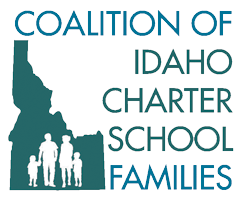Idaho Ed News: Charter Commission Seeks to Weather Storm after Summer of Controversy
/Originally posted on Idaho Education News. Read the full article on their page here.
Kevin Richert 08/29/2019
By day, Alan Reed owns a family dairy — well-known around Idaho Falls for its ice cream products.
Idaho Public Charter School Commission Chairman Alan Reed addresses the audience at an Aug. 1 meeting. (Sami Edge, Idaho Education News.)
But Reed has spent the summer mired in political controversy, even though he says he wants what his critics want. “Choice is important, alternatives are important, when it comes to education.”
Reed chairs the Idaho Public Charter School Commission. Critics say commissioners are beholden to an unprofessional, biased staff. They say the commission’s rhetoric and Reed’s recent apologies to charter leaders belie a desire to shutter schools.
As Idaho’s charter school sector grows, reaching an enrollment of 25,000 students, the commission has become a polarizing force. Some charter leaders still defend the commission, despite recent missteps. Reed has been trying to mend fences with political leaders, and it appears the commission still has powerful Statehouse allies.
HOW WE GOT HERE
The controversy dates back to April 11, when commissioners and staff met for nearly two hours behind closed doors.
The stated reason for the executive session was legal; commissioners wanted to review confidential student data. The discussion drifted. Commissioners talked about the politics of closing charter schools — and what it would take to bring legislators around to the idea. They made disparaging remarks about Heritage Academy, its administrator and the community it serves. At one point, Reed expressed regret that the Jerome school remains open. (Reed later apologized, and tried to meet with Heritage officials, who rebuffed the invite.)
Responding to a series of complaints, Attorney General Lawrence Wasden’s office launched an investigation, and concluded that the commission probably violated Idaho’s open meeting law. The commission met one week later, admitted to breaking the law and received training from a Wasden deputy.
“There is an issue, and rightly so, of trust,” Reed said in a recent interview. “(You have to) behave yourself out of it.”
For critics, the problem transcends one illegal meeting. The commission has shown clear animosity towards some charter schools, and those schools’ leaders don’t want to respond to an adversarial agency, said Tom LeClaire, president of the Coalition of Idaho Charter School Families.
“It’s become a dead relationship, and that’s not what we want,” he said.
The contentious relationship has a lot to do with the commission’s role.
WHO ARE THESE GUYS — AND WHAT DO THEY DO?
Supported by four staffers, the commission’s seven volunteer members wield considerable power over charter schools.
The commission serves as authorizer for three-fourths of Idaho’s charter schools. Last year, more than 16,000 students attended charter schools under the commission’s bailiwick. That number will grow this fall, as four new commission-approved schools open their doors.
The 46-school portfolio includes large Treasure Valley charters, such as Sage International School in Boise and North Star Charter in Eagle, and smaller schools serving McCall, Gooding and the Fort Hall Indian Reservation. The commission oversees schools that post some of the state’s top test scores, and virtual schools serving a high proportion of at-risk students.
The Legislature created the commission in 2004, in order to give charter advocates another way to open a school. Colleges and universities can authorize a charter, but none ever has, and some school districts are uninterested in authorizing charters.
Reed is glad the commission provides a path to opening a new school. But at the same time, the commission faces a constant balancing act — between approving schools and providing oversight, and fostering innovation and protecting public money.
“We do not want the taxpayer throwing money at an idea that we’re pretty confident is going to fail,” he said.
But LeClaire says the commission has done a “terrible” job as an authorizer, forcing applicants to navigate a time-consuming paperwork process. He concedes that the commission has an oversight role, but says the group has abandoned its support role and talks, at least privately, about closing schools.
“This isn’t a regulatory agency,” he said.

